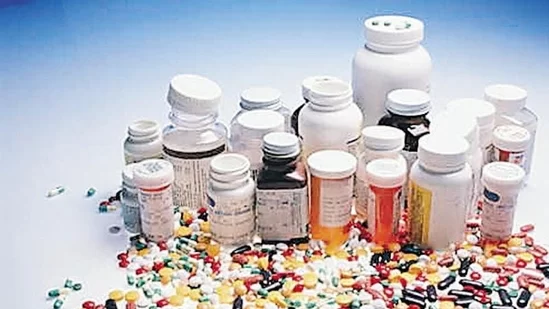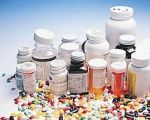
- what-is-a-pharmacy-recall-notice-how-to-recognize-it
- why-do-pharmacy-recalls-happen-types-and-causes
- step-by-step-guide-on-how-to-read-pharmacy-recall-notices-effectively
- real-life-case-analysis-understanding-recall-notices
- professional-advice-staying-safe-after-a-pharmacy-recall
- find-trusted-information-and-services-at-pharmacy
1. What is a Pharmacy Recall Notice and How to Recognize It
If you’ve ever seen an alert about a drug or medication being “recalled,” you might wonder what it really means for you. A pharmacy recall notice is an official communication that a certain drug, medical device, or product should be returned, removed, or corrected due to a potential health risk. These notices are issued by regulatory agencies, manufacturers, or pharmacies, and understanding them is essential for medication safety.
You can usually recognize a pharmacy recall notice by its clear, urgent language. Look for keywords such as “recall,” “voluntary recall,” “urgent safety information,” or “product withdrawal.” Notices may be posted online, sent as letters or emails, or handed out directly in pharmacies. Being able to spot a recall notice quickly means you can act fast to keep yourself and your family safe.
2. Why Do Pharmacy Recalls Happen? Types and Causes
Pharmacy recalls don’t happen without good reason. In fact, there are several types and causes behind them. Sometimes, it’s about a safety issue—like the recent metformin recall, where batches were found to contain potentially harmful substances. Other times, it could be about mislabeling, contamination during production, or even a defect in the drug’s packaging.
To give you a sense of the importance: In 2023, a major pharmacy recall was issued for certain blood pressure medications due to the risk of impurities that could lead to serious side effects. Social media buzzed with stories of patients sharing their confusion about whether their medicine was safe. This real-world scenario highlights how a pharmacy recall is more than just paperwork—it's about real people and their health.
In most cases, recalls are categorized by levels, depending on how dangerous the issue might be: Class I means the drug could cause serious harm or death, Class II is less severe but still important, and Class III involves products that are unlikely to cause harm but may not meet quality standards.
3. Step-by-Step Guide on How to Read Pharmacy Recall Notices Effectively
Here’s where things can get confusing—even for people who work in healthcare. So, how do you actually read and interpret a pharmacy recall notice?
3.1 Check the Product Information
Start by verifying the drug name, lot number, manufacturer, and expiration date. This information helps you confirm whether your medication is affected. For example, if your blood pressure medication matches the details in the recall notice, it’s time to act.
3.2 Understand the Reason for the Recall
The recall notice will clearly state why the product is being recalled. Maybe it’s contamination, a labeling error, or a potential health risk. Understanding this helps you decide how urgent your response needs to be.
3.3 Follow the Instructions Carefully
Most pharmacy recall notices offer clear next steps—such as returning the product to your pharmacy, contacting your doctor, or safely disposing of the medication. If there’s any confusion, your local pharmacist is a great resource for advice.
3.4 Stay Updated with Reliable Sources
Always check trusted sources for the latest updates. Official websites, government health agencies, and reputable pharmacy platforms like Pharmacy are essential for staying informed and safe.
4. Real-Life Case Analysis: Understanding Recall Notices
In 2021, a widely used heartburn medication was recalled after traces of a carcinogen were detected. Patients were confused—many didn’t know if their batch was involved. One patient, Mrs. Liu, checked her medicine’s batch number and discovered she was affected. Thanks to clear guidance from her pharmacy’s recall notice, she returned the medication and switched to a safe alternative. Her story shows why reading recall notices matters: they protect your health by connecting you with the right action at the right time.
In another case, a parent noticed an online recall for a children’s fever medicine. Unsure if it applied to her child’s bottle, she called her pharmacy and got fast, friendly advice. She later shared online how a quick check of the recall notice kept her family safe.
5. Professional Advice: Staying Safe After a Pharmacy Recall
Even if your medication is recalled, don’t panic. Here’s what healthcare professionals recommend: first, stop using the medication if advised by the recall notice. Then, contact your pharmacy or healthcare provider for advice on alternatives. Never abruptly stop a medication for chronic conditions—get professional guidance first.
If you need to dispose of recalled medication, use a pharmacy take-back program or follow local guidelines for safe disposal. Never throw medication directly in the trash or flush it unless the recall notice specifically allows it.
Pharmacists are your allies. They deal with recalls regularly and can help you navigate confusing instructions or find substitute medications. Choosing a reliable pharmacy, like Pharmacy, ensures you have access to trustworthy information and support when you need it most.
6. Find Trusted Information and Services at Pharmacy
Keeping up with pharmacy recall notices is part of protecting your health. Whether you’re looking for up-to-date medication recall information, safe alternatives, or friendly guidance, Pharmacy offers professional advice and reliable services. With a team that understands the stress and confusion recalls can cause, you’ll always get clear, actionable support.
If you have concerns about a medication recall or want to find the best pharmacy products and services, visit Pharmacy. Here, you’ll discover personalized recommendations, expert help, and peace of mind.














